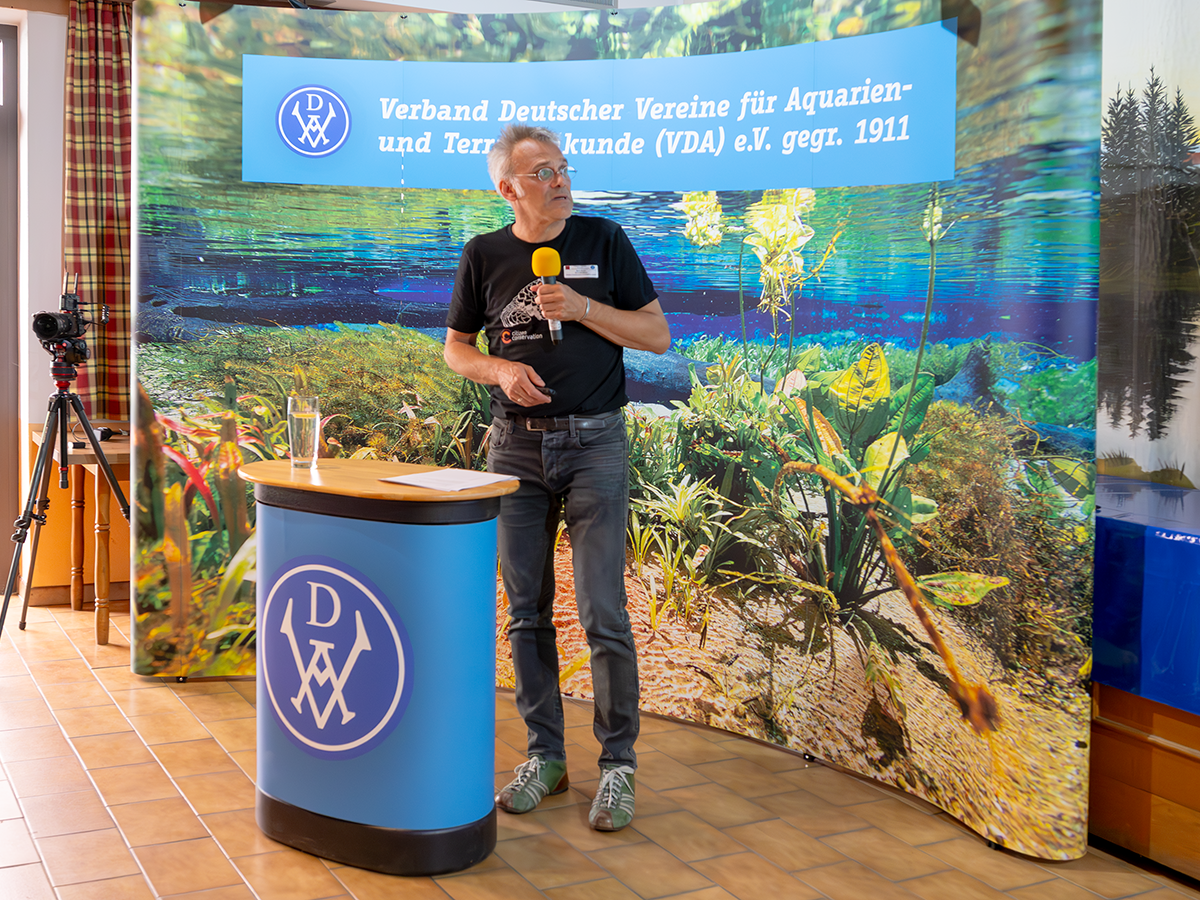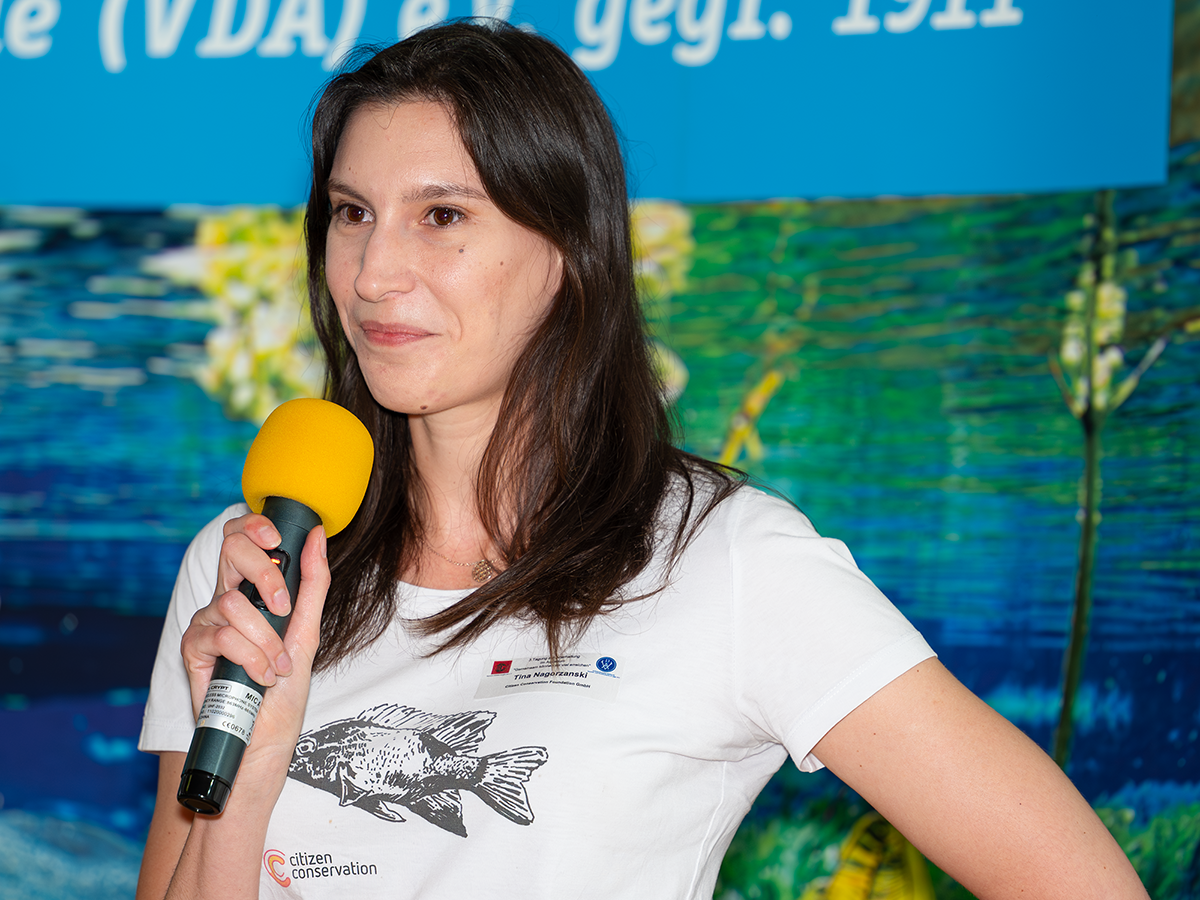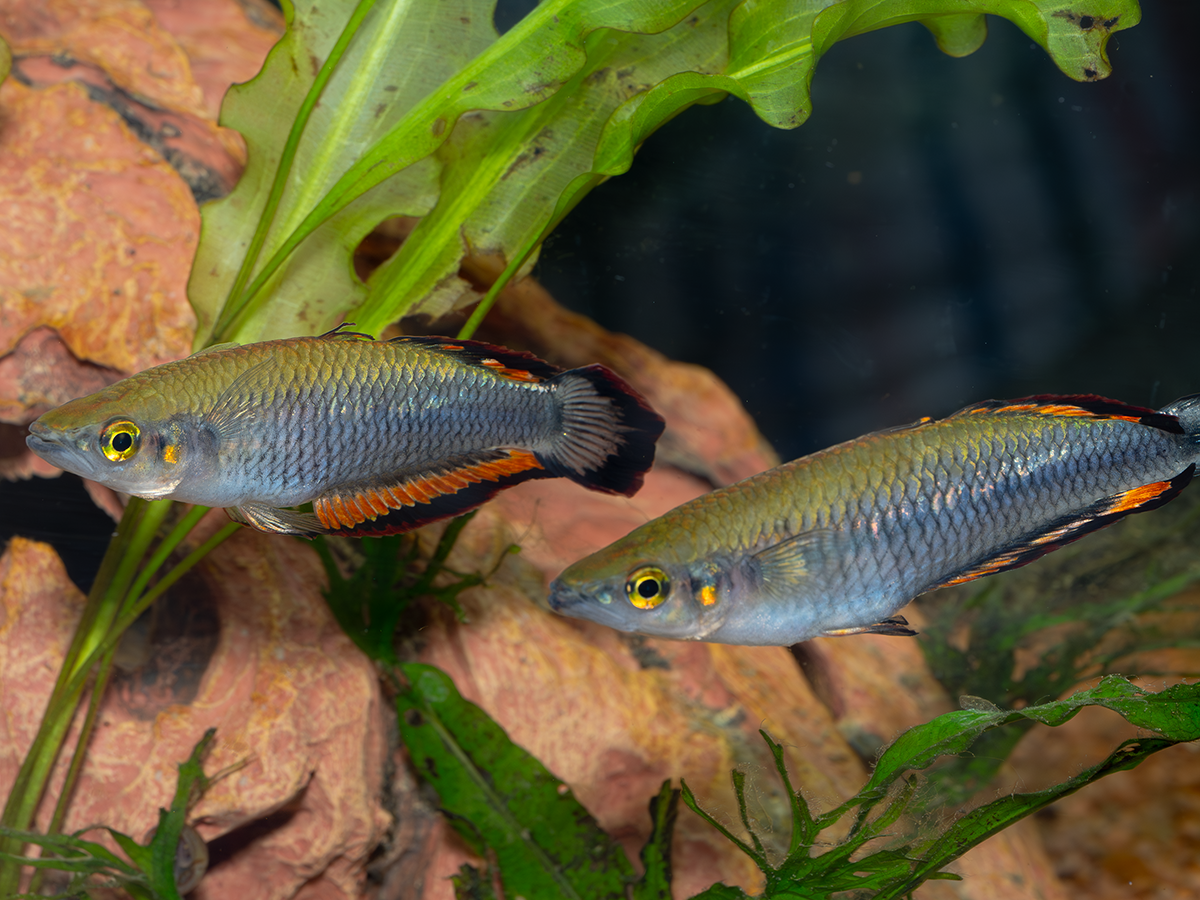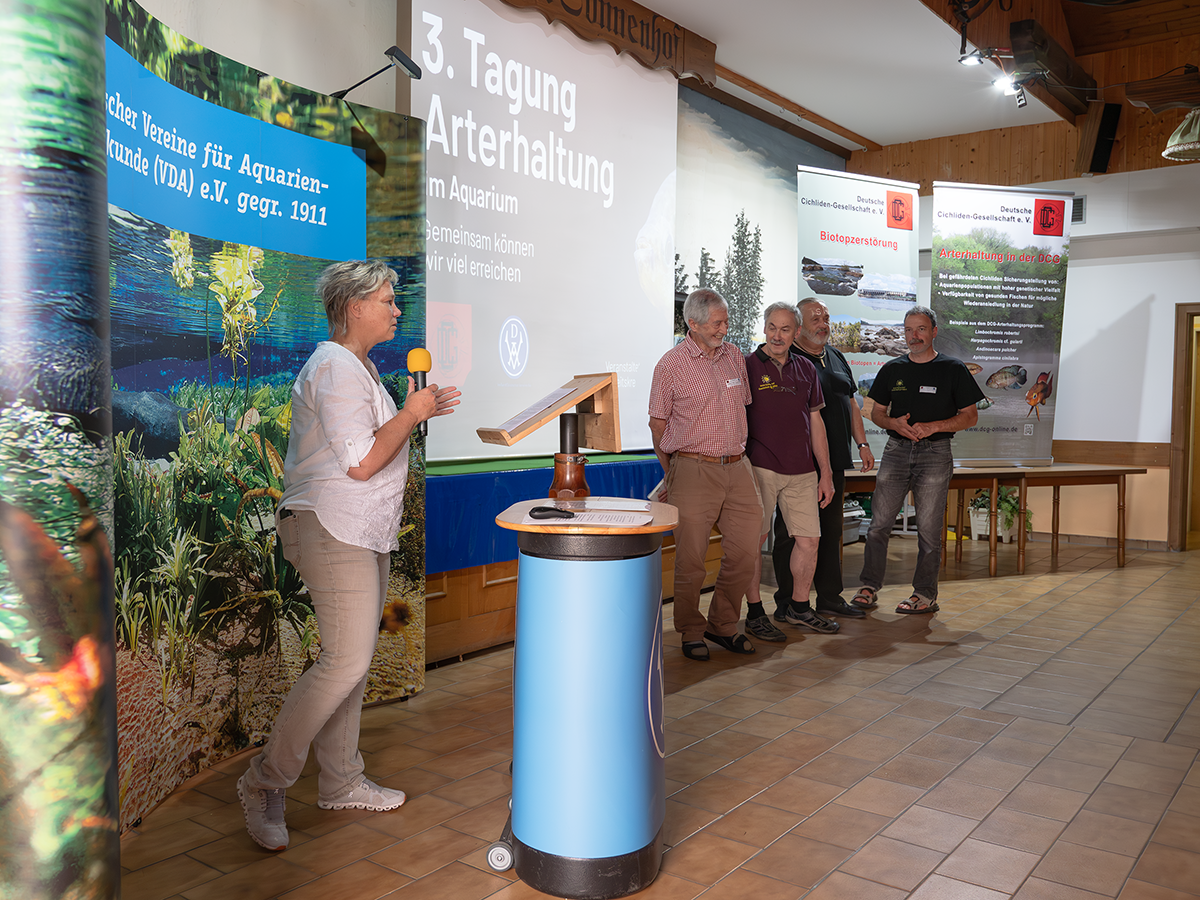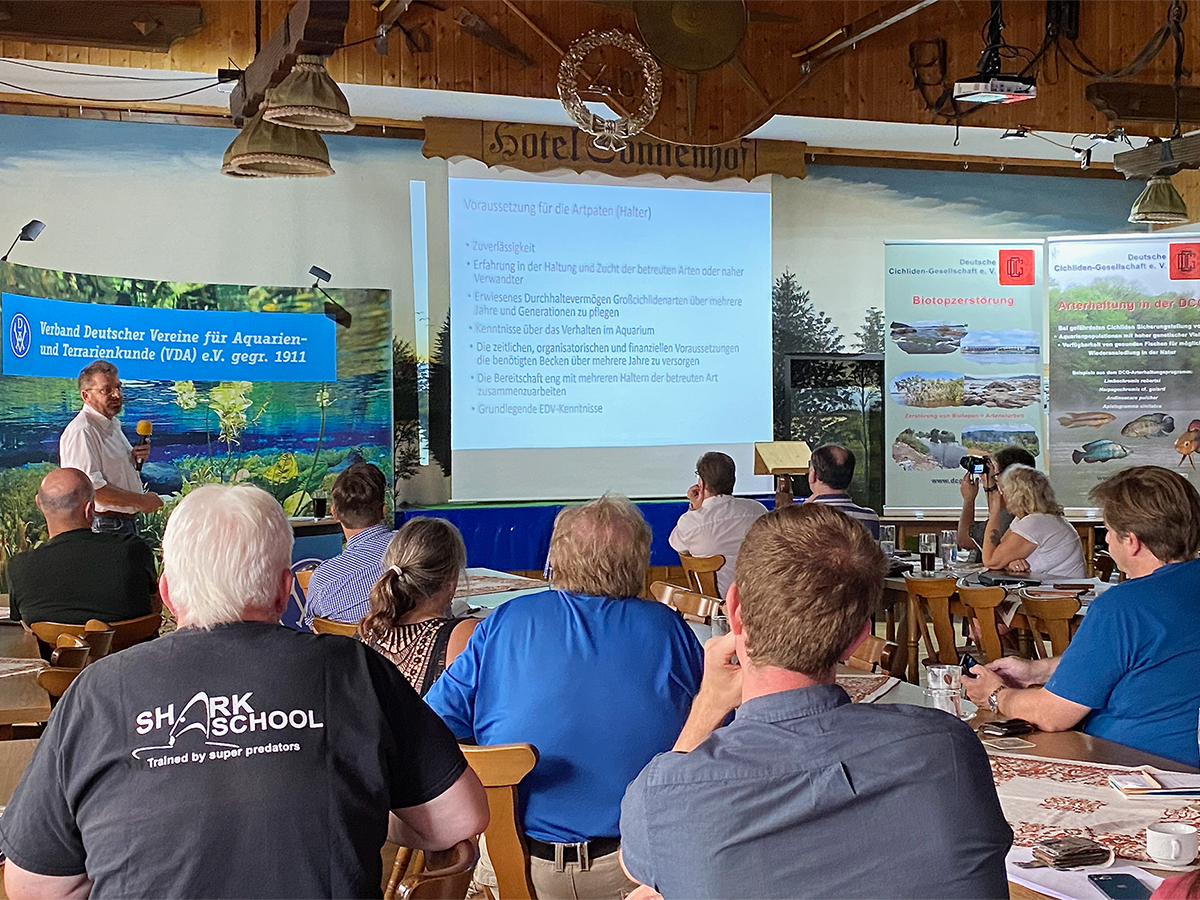Species conservation in the aquarium
The keeping and breeding of aquarium fish has a long tradition in Germany. The topic of species conservation is increasingly coming into focus. For this reason, the VDA working group Nature, Species & Animal Conservation and the German Cichlid Society (DCG) invited to the 3rd conference on species conservation in aquariums in Thannhausen on July 8 and 9. Among the participants and speakers were representatives from zoos, species conservation organizations, the pet trade as well as private fish keepers. For Citizen Conservation Björn Encke and Tina Nagorzanski participated to share on the one hand the program itself as well as the first experiences in the field of aquarium conservation and to give an outlook on the new fish species that will be added to the program soon.
Increasing transparency and coordination in ex situ species conservation
Once again, this meeting highlighted how many volunteer efforts already exist in the area of ex situ species conservation. The challenge that all species conservation efforts face is the issue of data collection and processing. Accordingly, the presentation of the new wildlife database “Wild at Home” struck a chord with the aquarists in attendance. The database, designed by Frogs & Friends, has been in development for two years thanks to funding from the German Federal Ministry of Economics and Climate Protection and the support of software developer marmalade GmbH, and is due to be presented to the public next year. The online tool will not only be used for the management of CC programs, but will be accessible to all wildlife keepers and breeding communities, thus providing the opportunity to facilitate and standardize the documentation of species conservation programs. The reactions of the fishkeepers and species coordinators of voluntary associations present were correspondingly positive and coupled with the hope that Wild at Home will provide them with an effective tool to make the coordination of species conservation programs within the aquatics scene much more effective and transparent.
